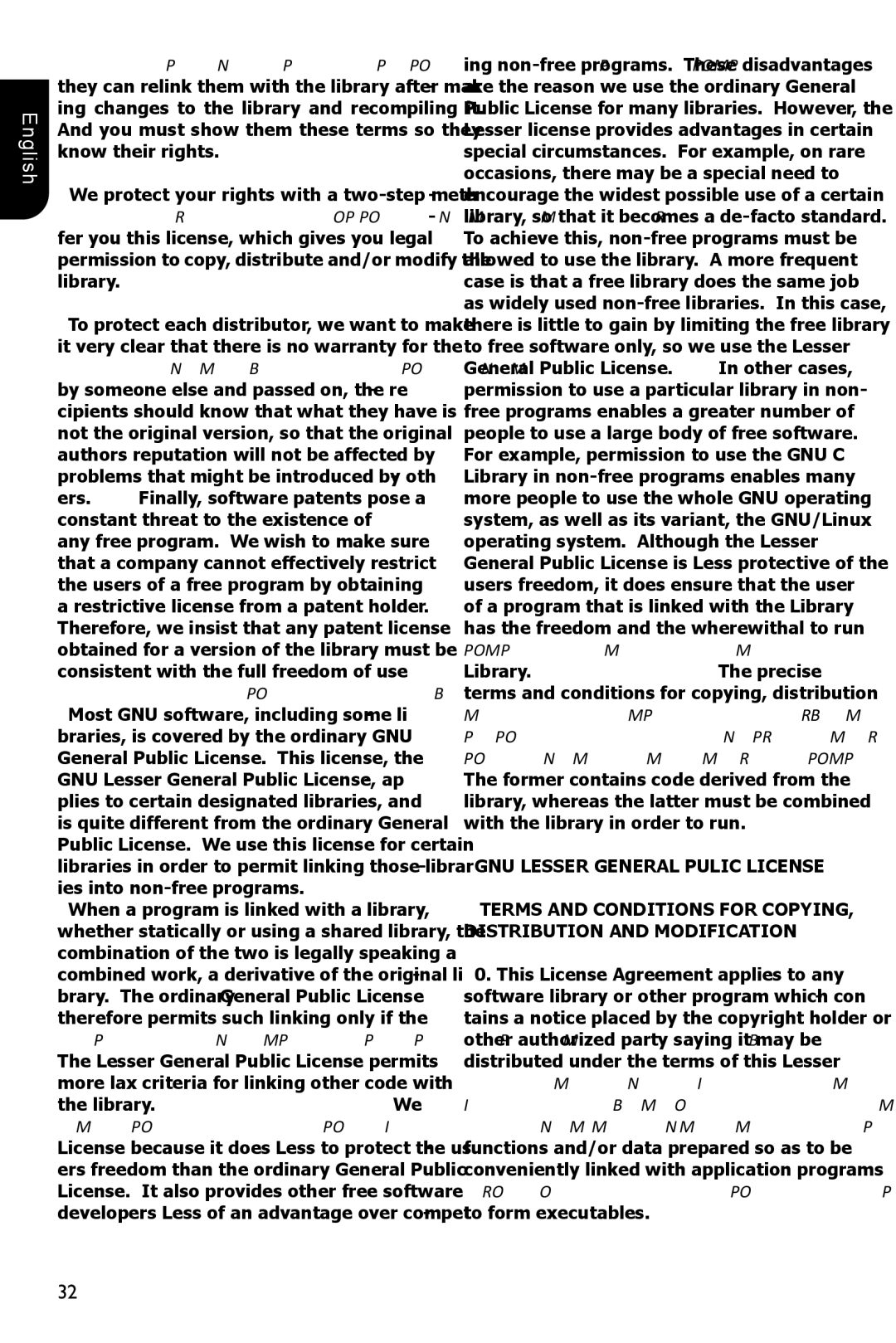English
complete object files to the recipients, so that they can relink them with the library after mak- ing changes to the library and recompiling it. And you must show them these terms so they know their rights.
We protect your rights with a
To protect each distributor, we want to make it very clear that there is no warranty for the free library. Also, if the library is modified by someone else and passed on, the re- cipients should know that what they have is not the original version, so that the original author's reputation will not be affected by problems that might be introduced by oth-
ers. Finally, software patents pose a constant threat to the existence of
any free program. We wish to make sure that a company cannot effectively restrict the users of a free program by obtaining a restrictive license from a patent holder.
Therefore, we insist that any patent license obtained for a version of the library must be consistent with the full freedom of use specified in this license.
Most GNU software, including some li- braries, is covered by the ordinary GNU General Public License. This license, the GNU Lesser General Public License, ap- plies to certain designated libraries, and is quite different from the ordinary General Public License. We use this license for certain libraries in order to permit linking those librar- ies into
When a program is linked with a library, whether statically or using a shared library, the combination of the two is legally speaking a combined work, a derivative of the original li- brary. The ordinary General Public License therefore permits such linking only if the entire combination fits its criteria of freedom. The Lesser General Public License permits more lax criteria for linking other code with
the library.We
call this license the "Lesser" General Public
License because it does Less to protect the us- er's freedom than the ordinary General Public License. It also provides other free software developers Less of an advantage over compet-
ing
General Public License. In other cases, permission to use a particular library in non- free programs enables a greater number of people to use a large body of free software. For example, permission to use the GNU C Library in
Library.The precise terms and conditions for copying, distribution and modification follow. Pay close attention to the difference between a "work based on the library" and a "work that uses the library". The former contains code derived from the library, whereas the latter must be combined with the library in order to run.
GNU LESSER GENERAL PULIC LICENSE
TERMS AND CONDITIONS FOR COPYING, DISTRIBUTION AND MODIFICATION
0.This License Agreement applies to any software library or other program which con- tains a notice placed by the copyright holder or other authorized party saying it may be distributed under the terms of this Lesser
General Public License (also called "this License").Each licensee is addressed as "you". A "library" means a collection of software functions and/or data prepared so as to be conveniently linked with application programs
(which use some of those functions and data) to form executables.
32
